Tools & Resources
Because our economic system developed during a time when natural resources were abundant, decisions were made without considering the explicit contribution of nature to economic activity. As these resources are becoming increasingly scarce worldwide, we need new tools to manage them more sustainably.Data Downloads and Licenses
The National Footprint and Biocapacity Accounts (NFBAs) provide comprehensive data on humanity’s demand on nature and nature’s capacity to meet that demand. Using the NFBAs, we can produce Multi-Regional Input Output (MRIO)-based Footprint data, which allows us to track detailed resource flows between countries’ major economic sectors.
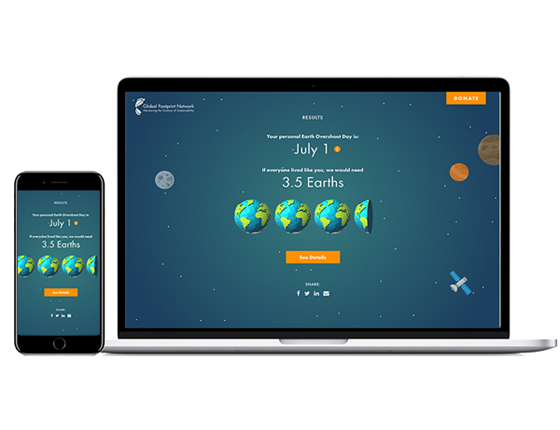
Footprint Calculator
Use our mobile-friendly calculator (available in eight languages) to measure your Ecological Footprint, determine your personal Earth Overshoot Day, and learn about solutions so we can all tread more lightly on the Earth.
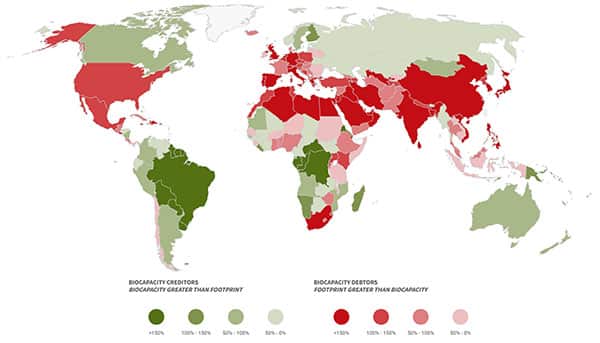
Open Data Platform
Does your country run a biocapacity deficit or a reserve? When did your country’s ecological budget go into the red? Our interactive map shows the Ecological Footprint and biocapacity results of nearly 200 countries since 1961.
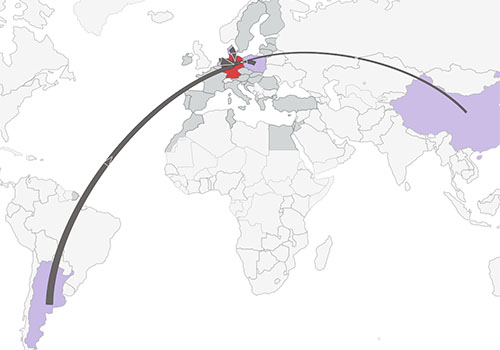
Food Footprint Platform
How much meat consumed by residents of France comes from France? Which countries supply Germany with meat? How large is the carbon Footprint of food imported to Greece? Explore the answers to these questions and more on the Food Footprint Platform, produced for the Foodnected project. The Platform displays Global Footprint Network’s analyses of EU and Mediterranean countries’ food Footprint and trade flows.
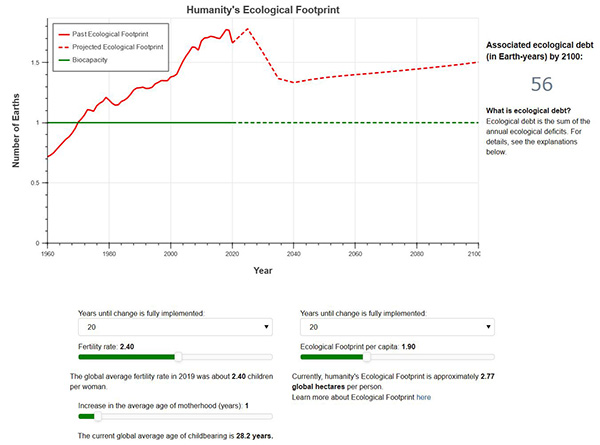
Footprint Scenario Tool
Use our global Footprint scenario tool to design possible futures for humanity. Choose key parameters that shape overshoot: how much each of us use, how many of us there are on the planet, and how quickly changes in consumption and family size are implemented. The tool then displays how your choices would affect humanity’s trajectory.
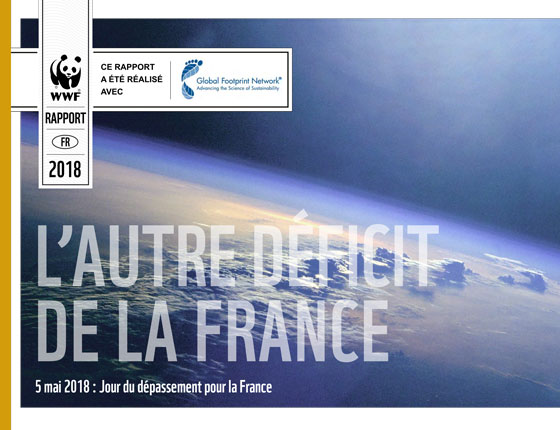
Publications
Our reports feature deeper investigations into the resource constraints of specific cities, regions, and countries to shape sustainability policies, manage risks, and create a prosperous future. Recent reports focus on the French Overshoot Day, Korea, Guizhou Province (China), and the Mediterranean Region.


